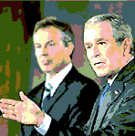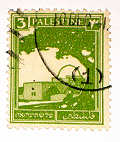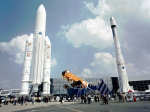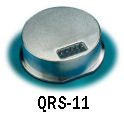 President Bush and Prime Minister Blair today signed the “Defense Trade Cooperation Treaty” which will ease export license requirements for defense articles exported between the United States and the United Kingdom. Details of the treaty are scarce at this point as the text of the treaty has not yet been released. The treaty will also require Senate approval, so even if the text were available, nothing is certain yet.
President Bush and Prime Minister Blair today signed the “Defense Trade Cooperation Treaty” which will ease export license requirements for defense articles exported between the United States and the United Kingdom. Details of the treaty are scarce at this point as the text of the treaty has not yet been released. The treaty will also require Senate approval, so even if the text were available, nothing is certain yet.
The official press release from 10 Downing Street, which first reported the signing of the treaty, was, to say the least, vague. No indication was made in the press release to the elimination of export license requirements.
The White House thereafter announced the treaty during Dana Perino’s Press Gaggle this afternoon on Air Force One:
The President and Prime Minister Blair signed a treaty this morning. It’s called the U.S.-U.K. Defense Trade Cooperation Treaty. It would improve transatlantic defense cooperation and counterterrorism efforts by alleviating barriers to trade in defense goods, services, and information between the two countries, including our defense industries. We are going to present this treaty to the Senate for their advice and consent.
The reasons we’ve undertaken this treaty with the U.K.: As you know, it’s our closest ally and our biggest defense trade partner, for several reasons. It’s in our national security interest to support joint U.S.-U.K. military and counterterrorism operations in a timely way, and to speed U.S.-U.K. research and development and production of the next generation of interoperable defense technologies. It’s also in our homeland security interests. We’re going to be collaborating with the United Kingdom to develop the most effective countermeasures possible to combat terrorist attacks at home and against our partners in the war on terror, and we also believe it is in our security and economic interests to save money by leveraging each other’s experience and by reducing duplication of efforts on some of the research and development that’s been going on.
To which a reporter immediately asked:
Q. Can you do any of that in English?
MS. PERINO: That wasn’t in English? I totally understood it.
Another press conference was held at State Department where spokesman Sean McCormack appears to have provided more details on the treaty. As of the time of this post, the transcript of that briefing was not yet on the State Department website.
Of course, the question in the forefront of everyone’s mind is what items will be exempted from export license requirements. The AP story on the treaty seems to suggest that the license requirement will be dropped on all military equipment. The Agence France Presse story is somewhat more circumspect and says that the license requirement will be eliminated for “certain U.S. military equipment.”
As soon as we can provide any answers to that question, we will try to do so.
UPDATE: The White House just released on its website a “Joint Statement Between the United States and the United Kingdom,” which also provides no detail on the elimination of export licenses between the two countries.

 Posted by
Posted by  Category:
Category: 

 The Office of Foreign Asset Controls (“OFAC”) today issued
The Office of Foreign Asset Controls (“OFAC”) today issued  For those of you who didn’t get to go to the Paris Air Show at Le Bourget and have been left behind, like me, to swelter in the heat and humidity of late June in the District of Columbia (or elsewhere), ExportLawBlog brings you the next best thing — a blog post on Le Bourget! (Well, maybe not the next best thing.)
For those of you who didn’t get to go to the Paris Air Show at Le Bourget and have been left behind, like me, to swelter in the heat and humidity of late June in the District of Columbia (or elsewhere), ExportLawBlog brings you the next best thing — a blog post on Le Bourget! (Well, maybe not the next best thing.) Last week we
Last week we  The QRS-11 navigational chip, perhaps the poster child for the so-called ITAR creep phenomenon, still bedevils the Directorate of Defense Trade Controls. Today, the DDTC
The QRS-11 navigational chip, perhaps the poster child for the so-called ITAR creep phenomenon, still bedevils the Directorate of Defense Trade Controls. Today, the DDTC 

